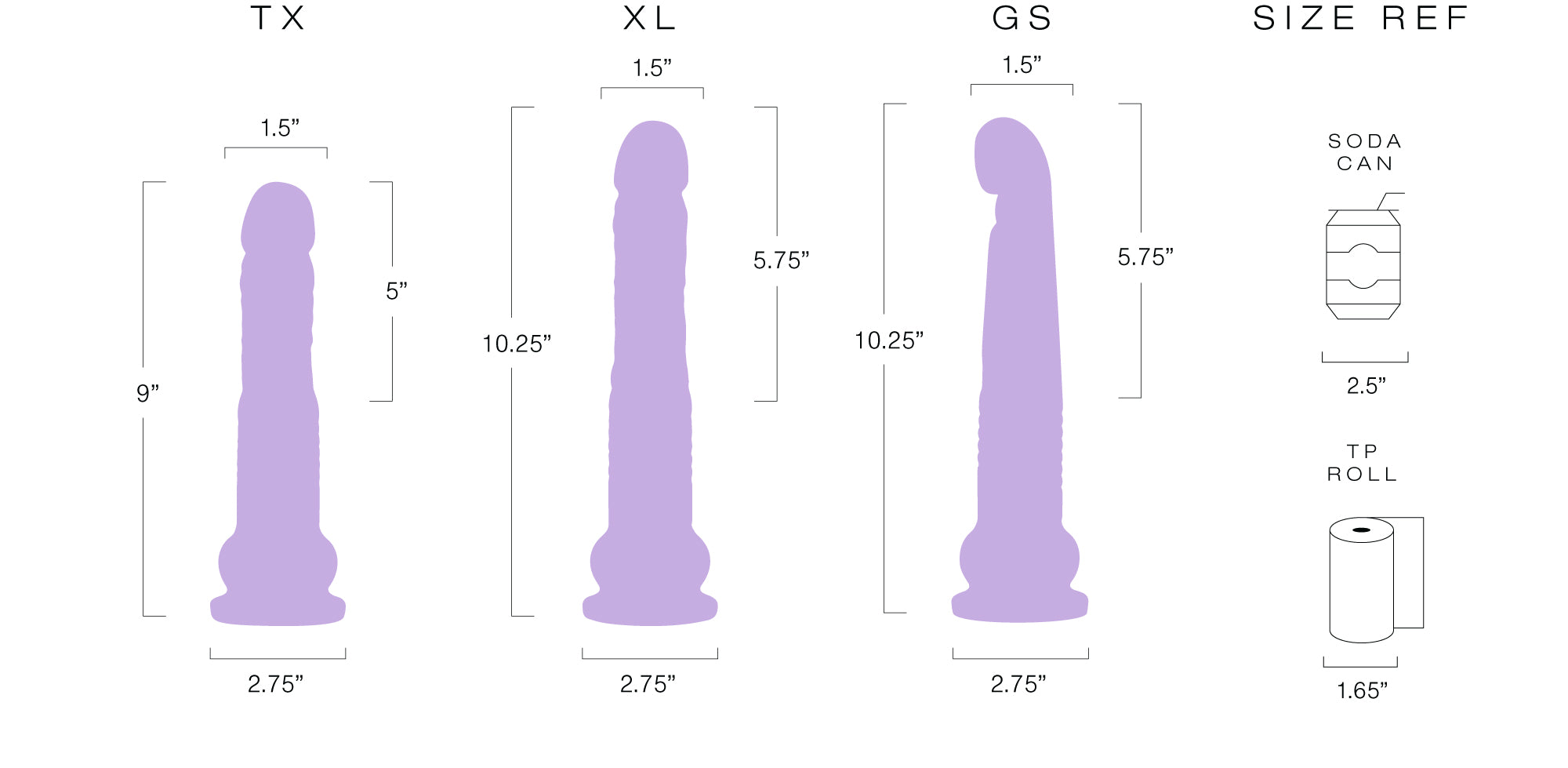From Taboo to Truth: Updating 'The Talk’ about Teenage Sex Health
Teenage years are often riddled with confusion and uncertainty, further compounded for young women by societal pressures and archaic stereotypes surrounding female sexuality and development.
These challenges are exacerbated by a notable lack of open, honest dialogue and comprehensive education on the subject, leaving many feeling isolated and uninformed. The silence around female pleasure and bodily autonomy perpetuates myths, fuels insecurities, and ultimately hinders healthy sexual development.
Addressing this issue head-on offers numerous benefits. Beyond improving physical health through informed choices and practices, it fosters a positive relationship with one's body, bolsters self-esteem, and nurtures mental well-being.
When young women are encouraged to explore and understand their sexuality, they’re much better equipped to communicate their needs and boundaries, leading to safer, more fulfilling experiences. Moreover, empowering teenage girls paves the way for a more equitable society, where gender disparities in pleasure and agency are acknowledged and actively challenged.
This guide seeks to dismantle barriers and foster a supportive environment for this vital dialogue. Through a series of thoughtfully curated topics, we’re going to provide comprehensive insights into understanding one's body, navigating the complexities of sexual health and pleasure, and advocating for personal well-being and autonomy.

The Importance of Self-Exploration and Self-Pleasure for Young Women
Entering adolescence, individuals between 11 and 14 frequently experience a burgeoning desire for connection and intimacy, sometimes expressed through romantic fantasies. Because of this, having that ever-important talk becomes even more important to ensure that young women have the right information to guide them.
Unfortunately, in many societies, the topic of female sexuality is often shrouded in silence, creating an environment where taboos and discomfort prevail. This culture of silence isn’t just oppressive; it breeds a multitude of myths and misconceptions that can have far-reaching consequences on a young woman's perception of her body and sexuality.
For instance, the notion that pleasure or masturbation can lead to physical harm or moral decay is both outdated and scientifically unfounded. These fallacies can actively restrict personal freedom and even hinder the development of a healthy relationship with one's body.
In fact, this sort of antiquated myth couldn’t be further away from the truth. According to research from Planned Parenthood, masturbation can play a significant role in reducing stress and lessening menstrual cramps, which can be a welcome relief for many.
Furthermore, a landmark 2013 study demonstrated that sexual activity, encompassing both intercourse and masturbation, can significantly alleviate migraine and cluster headaches for a portion of individuals.
Complicating the issues surrounding this delicate discussion further is the pervasive influence of pornography, which, for many, becomes a skewed source of sexual education. The unrealistic portrayals that are often found in adult content can set unattainable standards and foster harmful expectations about bodies, performance, and consent.
The pervasiveness of pornography, thanks to the proliferation of smartphones and low-cost internet, is another point of concern. A staggering 84.4% of males and 57.1% of females aged 14-18 reported viewing pornography, according to a 2021 study analyzing data from the National Survey of Porn Use, Relationships, and Sexual Socialization, also known as the NSPRSS.
This type of widespread exposure among young people raises significant concerns about potential impacts on their overall sexual development and well-being. Recognizing and challenging the misconceptions that pornography can create is crucial for educating young women about sexuality, as they can distort the understanding of healthy, consensual, and fulfilling sexual experiences.
The journey through puberty is marked by a cascade of physical and emotional changes, signaling the onset of adolescence. During this critical period, the body undergoes significant development, and the mind grapples with newfound feelings and desires.
This natural evolution often sparks a curiosity about sexuality and self-exploration, marking a normal and healthy part of growing up. Because of this, it's essential for young women to understand and accept these changes as a natural part of life and be free from shame or guilt.
However, the path of self-discovery is seldom straightforward, especially with the added layer of peer pressure and societal expectations. Teens often find themselves navigating a complex web of messages about how they should look, behave, and feel, and these external pressures can cloud their judgment and lead to confusion or distress.

Fostering Greater Self-Acceptance for Females
It’s essential to foster an environment where young women can seek accurate information, feel safe to ask questions, and be assured that their experiences and feelings are normal and valid.
Understanding and appreciating your unique body is foundational to self-acceptance, so we must teach young women to ditch the cookie-cutter diagrams and embrace inclusive, accurate information about female anatomy and physiology.
This journey starts with recognizing and respecting your individual variations and celebrating what makes your body uniquely yours. Remember, menstruation is a natural and healthy part of life, and prioritizing self-care practices nourishes both your body and mind.
As girls blossom into women, it’s important to move beyond the many myths out there and explore the true meaning of healthy sexuality. It's not just about physical intimacy; it encompasses emotional connection, self-understanding, and pleasure.
Explore the various dimensions of sexuality, from emotional intimacy to self-discovery, and debunk the harmful myths that often cloud our understanding. Remember, pleasure is not shameful, and self-exploration is a journey of personal discovery. Embrace your unique desires and preferences with respect and understanding.
We need to teach these young women to ditch the societal pressure to fit into unrealistic beauty standards. They're harmful, unattainable, and frankly, irrelevant. Instead, cultivate body acceptance and self-compassion. Practice positive self-talk, challenge negative thoughts, and surround yourself with positive influences who celebrate diversity.
Remember, a healthy body image isn't just about aesthetics; it's about feeling good in your own skin and valuing your well-being. This self-acceptance spills over into your overall health, fostering positive choices and a confident outlook on life.
Navigating Connection with Confidence
Consent, the enthusiastic "yes," is the cornerstone of all healthy relationships, and it's not just about physical intimacy; it applies to every interaction you have, big or small.
With this in mind, make sure to clearly communicate your desires and boundaries and actively listen to understand your partner's. Negotiation about what feels good and what doesn't is key, and remember, consent is dynamic and can change at any time.
If someone pressures you, disrespects your boundaries, or makes you feel unsafe, that's a clear sign of unhealthy or even abusive behavior. Walk away from the situation safely, and make sure to seek out support from trusted friends, family, or professionals.
Building healthy relationships goes beyond just basic physical attraction, so focus on developing strong communication skills, learning to express yourself clearly, and listening actively to understand others.
Cultivate emotional intelligence by recognizing and managing your own emotions and responding empathetically to others. Also, try to seek relationships that are characterized by mutual respect, support, and trust. These are the qualities that foster genuine connection and emotional well-being.
Remember, healthy relationships are a two-way street. Setting boundaries is essential here, so make sure to clearly communicate your needs and expectations clearly and respect the boundaries of others.
Healthy relationships don't involve manipulation, control, or possessiveness. Instead, they nurture individual growth and create a safe space for both partners to thrive.

Owning Your Own Story
Imagine a world where young women confidently navigate their sexuality, where bodies are celebrated for their diversity and not shamed for their existence. This isn't some kind of romantic idea; it's the reality we can really create by empowering young women to own their own bodies and narratives.
Investing in their knowledge about sex and their bodies isn't just about checking a box; it's about unlocking a wave of self-respect, informed choices, and healthy relationships. When given accurate information and the freedom to explore in safe spaces, young women become advocates for their well-being.
This empowerment journey starts with dismantling harmful stereotypes. So, let's break free from the narrow definitions of beauty and sexuality forced upon young women, and instead, let's celebrate the multifaceted nature of bodies, fostering self-acceptance and appreciation for individuality.
<br><!--
Mature > Erotic > Sex Toys & Erotic Games
£29.00
Little Goo | Dinosaur Clitoral Suction Adult Sex Toys for Women
For further insights and a deeper understanding of this subject, we highly recommend watching Robin Stevens' TED Talk titled "Why I Gave My Teenage Daughter a Vibrator." Her informative and thought-provoking presentation offers a unique and thought-provoking perspective that enriches the conversation around this complicated and often taboo topic.






